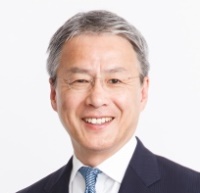
by Noriyuki Morimoto
When you take out a mortgage with a fixed rate, you either gain or lose depending on the change in interest rates. You lose when interest rates go down, and gain when they go up. But in theory, based on rational expectations in the entire market, the losses and gains should be equal: this is a hypothesis delivered on the premise that they have to be equal in order for the market principle to work.
Asking whether or not a theory works out in a market is the same as asking whether the market is efficient. Efficiency probably depends on the rational regulatory environment, rather than the level of freedom in transactions (i.e. having less regulations), as well as how financial thought is grounded in daily practice, rather than sensibility of participants (i.e. how rational they are), so it is interesting to observe the structural differences of the US and Japanese mortgage markets.
If a fixed-rate mortgage loan can be refinanced without fees at any given timing, a drop in interest rates will accelerate refinancing at lower mortgage rates. The US market is that type of market. In other words, the debtor has an advantageous right, called an option in financial theory, to refinance at a lower rate.
Since everything has a price in theory, debtors are paying for this option as well: usually in the form of a higher mortgage rate. Thus the values of mortgage loans that can be refinanced and those that cannot are made equivalent through option fees.
With mortgage loans that basically don’t allow refinancing, but can be made refinancable with an additional payment of fees, the theoretical value of such fees can be calculated through this equivalence.
In the US mortgage market, the price of a refinancing option is thought to be at a point close to its theoretical value. While a highly advanced calculation method is needed to provide this theoretical value, in the US, the most advanced mathematics are applied in the mortgage market, which is very close to the lives of ordinary people.
On the other hand, what about the Japanese mortgage market? For example, is the actual level of refinancing fees close to its theoretical value? The gap is probably bigger in Japan, with the stiff structure of bank fees and overcompetition of mortgage services. In other words, the Japanese mortgage market may not be so efficient.

Chief Executive Officer, HC Asset Management Co.,Ltd. Noriyuki Morimoto founded HC Asset Management in November 2002. As a pioneer investment consultant in Japan, he established the investment consulting business of Watson Wyatt K.K. (now Willis Towers Watson) in 1990.

